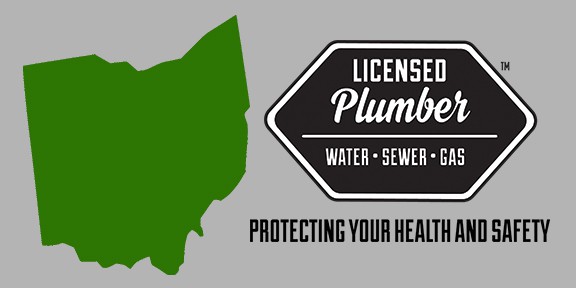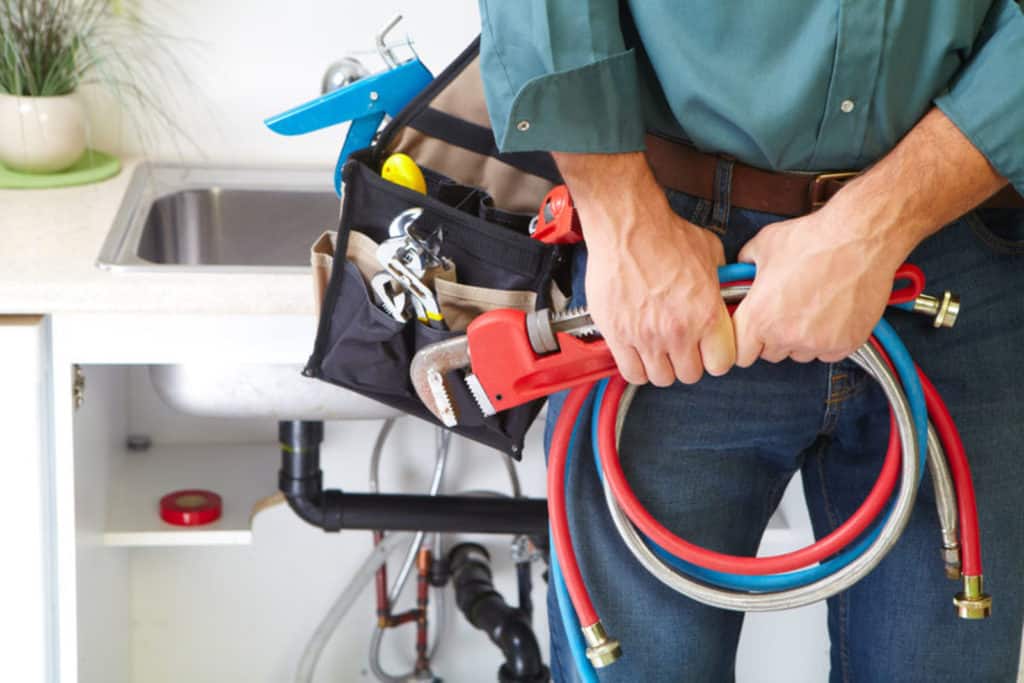Table of Contents

At this point in the 21st century, acquiring a trade skill such as plumbing provides a lucrative career path, considering how these fields are gaining more recognition. However, learning trade skills isn’t as simple as taking the four-year route to university, since each state has different regulations and requirements for licensing qualifications. Learn how to become a licensed plumber in Ohio below.
Why Licensing is Important
Licensing is crucial, no matter what state you want to work in, and it’s provided by either a state or district-based authority. Having a license means accessing various job opportunities in your state, which includes large-scale projects like designing plumbing layouts. Performing plumbing work without a proper license is an offense under section 221D, sub-section 1 of the Building Act 1993.
Getting licensed from your state-based authority is a beneficial turning point for a plumber’s career. It promotes learning about the specific plumbing problems that are common in a state, and how to address them with advanced methods.
State vs. District-Based Agency Licensing
In some states, getting a state license is enough for a contractor to complete projects all over the state. On the other hand, bigger states with diversified cities and districts will require a plumbing contractor to get a district license.

This will limit them to working in a particular district, but since these areas will be very large, such as those in the state of New York, contractors get plenty of work opportunities.
Getting a Plumbing License in Ohio
Plumbers looking to get licensed in Ohio have to get authorized by the Ohio Department of Commerce, the Ohio Construction Industry Licensing Board (OCILB). The board is responsible for ensuring that requirements are met before plumbers are licensed to be contractors.
Requirements for a Plumbing Contractor License
High School Diploma or Equivalent
If you’re applying for a plumbing contractor license in Ohio, you have to be a minimum of 18 years old. You should have graduated high school or have a GED.

Experience
You should have 5 years of plumbing experience, which includes an apprenticeship. This amounts to 6000 hours of hands-on experience and 1240 hours of formal education. Or, you should have been working in construction for 3 years as an engineer.
Business and Law Exam
To get a plumbing license in Ohio, applicants need to pass the Business and Law Exam. This is a requirement so that trades professionals can understand the necessities for starting their own business or contractor work regulations.
Applying For a License
The process of applying for a license involves a couple of steps. These differ from state to state, but the premise is the same – the issuing body wants applicants to meet basic qualifications before attempting the test and getting licensed.
Application Form
First, you have to complete an application form and submit it with a $25 application fee. Once the OCILB receives your application, they establish whether you qualify to take the examination or not.
Exam
You’ll be notified when your eligibility is confirmed, but before sitting for the exam, you need to take a background check. Once you pass the check, you’re approved to sit the exam.
You’ll get access to a Candidate Information Bulletin, which has instructions on scheduling your exam. The exam is a computer-based test and your test venue will be at any site throughout the state, depending on where you live, and availability.
If you pass the exam, it’s time to apply for a license.
License
Send the $25 license issuance fee to the state, along with a copy of your examination results. The check should be made payable to the “Treasurer, State of Ohio”.
Not to mention, you have to provide verifiable proof that you possess $500,000-worth contractor liability insurance.
Finding a Job
Once the state issues you a plumbing contractor licenses, it’s time to chose one out of three main career paths.
Stay Connected With an Apprenticeship
Usually, plumbing contractors start working at the same company where they completed an apprenticeship. This can prove beneficial since they are already familiar with the workplace and type of jobs that usually come in.

Start With a New Company
Some plumbing contractors want a change of pace, so they apply to a new company. This gives you the opportunity to build a diversified portfolio and increase experiences.
Start Own Company
However, some plumbing contractors prefer to apply their business and law knowledge to start their own company or work as a solo contractor. Starting their own company allows them to hire journeyman plumbers and train apprentice plumbers.
Working in a Different State
Nonetheless, getting your state or district plumbing license doesn’t imply that you can work in any state you’d like. In fact, it doesn’t’ even mean that you can work the entirety of your career with just one license.
Getting a plumbing contractor license from Indiana means you can only practice in Indiana. For projects that fall out-of-state, it may be possible to get a temporary permit. Similarly, plumbing contractors will have to get their licenses renewed every year to keep practicing. This is helpful because you get a chance to gain more knowledge about the field.
Advocate for Licensing
PHCEid.org is an advocate for the Plumbing, Heating, Cooling, and Electrical contractor to properly identify their licensed status for public awareness. Professional Contractors have the license or certification to work in homes and businesses. Without the proper certification and licensing to become a skilled trades professional, it compromises the integrity of the trade industry.
The contractors listed on the PHCEid.org website are licensed or certified according to the codes and laws set forth by each governing state and/or entity. Licensed Contractors work in compliance with local and state codes set forth by their governing trade industry board. Get more information at PHCEid.org or call 844-954-2367 today!
